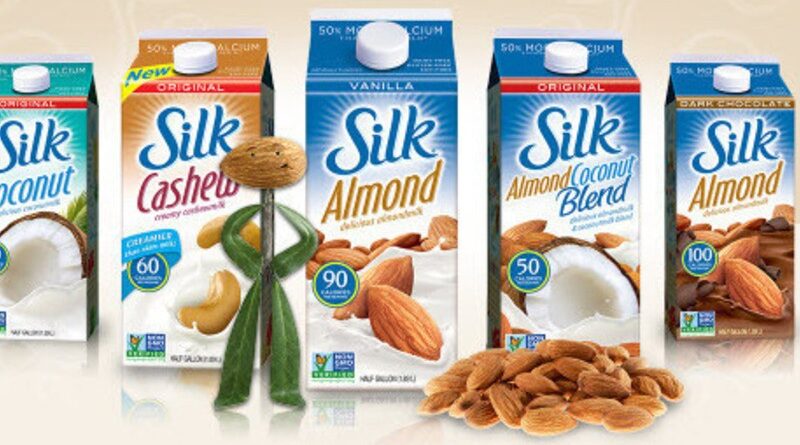Silk Almond Milk Nutrition Unveiled: Your Ultimate Guide to Health
Silk Almond Milk, a dairy-free substitute with a combination of creamy texture and nutty flavor, has become incredibly popular. Its importance in our diets can be better understood by being aware of its nutritional worth and health advantages. In this post, we get into the details of Silk Almond Milk nutrition, looking at its benefits, applications, and things to think about if you’re trying to live a plant-based or dairy-free lifestyle.
Silk Almond Milk Nutrition Profile
The nutrient-rich content of Silk Almond Milk has several health advantages. The following is a summary of its main nutritional ingredients:
Calories:
Silk Almond Milk is often lower in calories than dairy milk, which makes it a good choice for people who are trying to watch their calorie consumption. Depending on the type, one cup of unsweetened it typically has between thirty and sixty calories.
Protein:
It can be fortified with extra protein to increase its nutritional value, even though it has less protein than dairy milk. A cup of Silk Almond Milk typically has one gram of protein in it.
Fat:
It is a heart-healthy option because it is naturally low in cholesterol and saturated fat. But it does have some good fats in it, mostly from almonds, which give it a creamy texture and supply important fatty acids.
Carbohydrates:
The primary source of carbohydrates in it is the sugars that naturally arise from almonds. On the other hand, unsweetened variants include less added sugar, so people who are watching their carbohydrate intake or on a low-sugar diet can enjoy them.
Vitamins and Minerals:
To improve the nutritional value of Silk Almond Milk, it is frequently fortified with important vitamins and minerals. Calcium, vitamin D, vitamin E, and vitamin B12 are frequently added as fortifications because they are important for healthy bones, strong immune systems, and general well-being.
The Health Advantages of Eating Silk Almond Milk
Several health advantages of it include:
Heart Health:
Since milk has less cholesterol and saturated fat than dairy milk, it is a heart-healthy substitute. Because of its good fats, which come mostly from almonds, you can lessen your risk of heart disease and LDL (bad) cholesterol levels.
Weight Management:
It can be a useful supplement to weight control strategies because it has fewer calories and less fat than dairy milk. It has a flavorful and creamy texture without being overly caloric.
Bone Health:
It, which has been fortified with calcium and vitamin D, promotes bone health and may help fend off osteoporosis. Strong teeth and bones require calcium, and vitamin D improves the absorption of calcium.
Digestive Health:
It is easier for people with dairy sensitivity or lactose intolerance to digest because it is naturally lactose-free. It offers a mild substitute for individuals who experience upset stomachs after consuming dairy products.
Diets That Are Vegan or Dairy-Free:
Silk Almond Milk is a mainstay of these diets since it provides a plant-based substitute for conventional dairy milk. It enables people to savor the smooth consistency and adaptability of milk without consuming components produced by animals.
Comparison with Dairy Milk
A comparison of it with dairy milk reveals various nutritional disparities:
Calories and Fat:
Silk Almond Milk is often lower in calories and fat than dairy milk, making it a healthier choice for anyone limiting their calorie intake or trying to cut back on their intake of saturated fat.
Protein Content:
Generally speaking, dairy milk has a higher protein content per serving than silk almond milk. If silk almond milk isn’t supplemented with extra protein sources, its protein content could be lower than that of dairy milk, which is a notable source of high-quality protein.
Calcium and Vitamin D:
To equal or surpass the nutritional value of dairy milk, certain types of Silk Almond Milk are fortified with calcium and vitamin D. It is imperative to verify the label to make sure there is sufficient fortification.
Lactose and Dairy Allergens:
Because it is naturally lactose-free, people who are lactose intolerant can use it. It is also free of dairy allergens, which means that people who have sensitivities to or allergies to dairy products can safely use it.
Using Silk Almond Milk in Recipe Development
A flexible ingredient that can enhance taste and nutrition in a variety of recipes is silk almond milk:
Smoothies & Shakes:
Silk Almond Milk adds vital minerals like calcium and vitamin D to smoothies and shakes while also serving as a creamy basis.
Cereal and Oatmeal:
For a tasty and wholesome morning option, prepare oatmeal or pour over cereal using it instead of dairy milk.
Baking & Cooking:
To produce dairy-free alternatives with a hint of almond taste, replace dairy milk in recipes for healthy pancakes, muffins, cakes, and other baked goods with it.
Sauces and Soups:
It gives food a rich, complex flavor by making creamy sauces and soups without the use of dairy cream.
Hot Drinks:
It is a tasty and satisfying dairy-free substitute for hot beverages including coffee, tea, and hot chocolate.
Conclusion
In conclusion, it sticks out as a highly well-liked, adaptable, and nutrient-dense dairy substitute. Its nutty flavor and creamy texture provide a wonderful experience, and its nutritional profile—lower calories, heart-healthy fats, and vital vitamins and minerals—makes it a useful supplement to a variety of diets.
It shows up as a good option whether you’re trying to control your weight, maintain your heart health, or satisfy dietary requirements like lactose sensitivity or veganism. Its numerous uses in recipes and drinks not only make it a delectable dairy milk substitute, but it also improves the flavor and nutritious content of food.
You Can Read More About Milk
Cashew Milk vs Almond Milk: Which is Better for You?
How to Make Barley Milk: Your Delicious Secret Recipe
The Best Low Carb Milk Options for Your Diet
